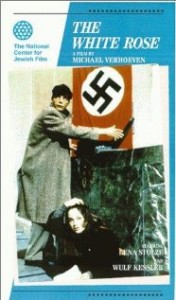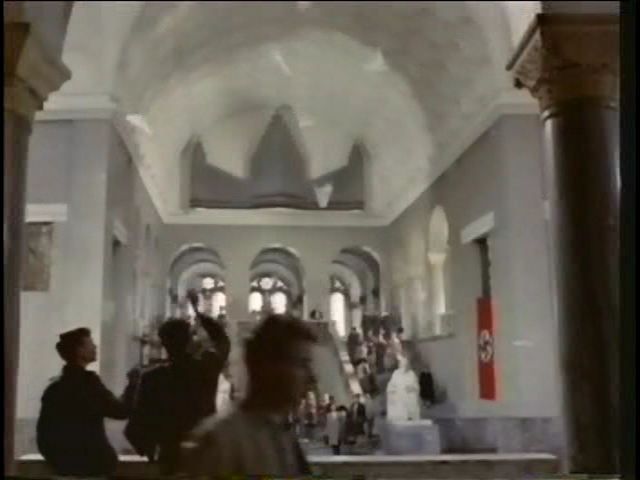White Rose, The (1982)
“We can only get rid of the Nazis if we lose the war.”
|
Synopsis: |
|
Genres, Themes, Actors, and Directors:
Review: Unlike in Sophie Scholl — which, as its name implies, is primarily concerned with showcasing the final days of Sophie herself — the screentime here is shared amongst a number of different White Rose protagonists, thus allowing us to learn a bit more about the group’s clandestine efforts to spread its urgent message. Through close attention to detail, the film effectively reminds us of the sobering truth, that during this infamous period of European history, one could lose one’s life for daring to write an anti-government missive — and that an act as simple as buying several dozen postage stamps could mark one immediately as a potential traitor to one’s country. Unfortunately, there are a few too many narrative threads hanging loose throughout the screenplay — such as a confusing subplot about Hans’s apparent romantic dalliances with two different women (Anja Kruse and Mechthild Reinders); but admirers of Sophie Scholl are sure to want to check out this essential cinematic counterpart, which fills in the gaps about an infamous, little told episode in German history. Redeeming Qualities and Moments: Must See? Links: |



One thought on “White Rose, The (1982)”
A once-must, as a worthy effort toward filling in (as the assessment states) “the gaps about an infamous, little told episode in German history.”
First viewing.
Since I recall being impressed by Verhoeven’s 1990 film, ‘The Nasty Girl’ (with another memorable performance by Stolze), I was especially glad to have the opportunity to see this earlier work. It is certainly true that the film has peripheral threads in the narrative that make it slightly difficult to follow the story as a whole – but it’s quite easy to follow the main thrust, and those (no doubt real) parallel stories only add to a feeling and texture of authenticity.
Films like this are important to see – not only because that time is not all that far behind us, really, but also because these are stories we need to know about. They inform not only of the past but of the present. It is often said that people who do not learn from the past are doomed to repeat it. In repeating that here, I’m not referring to ffs (obviously) but serious-minded ffs in particular will want to see how films such as this continue to speak to us in terms of how they relate to current world events.
Whether in good times or bad, there are always those who find it easier to be self-serving (or, in the case of this film, to choose to “cling to Hitler” because they feel it’s their only – cowardly – option). That’s why it’s especially inspiring to watch this group of young people tirelessly doing all they can, against the odds, to maintain and promote resistance.
Though a bit dense (as I agreed), the film doesn’t feel long – quite the contrary, I find it gripping throughout, with fine ensemble work by the cast, in Verhoeven’s capable hands.